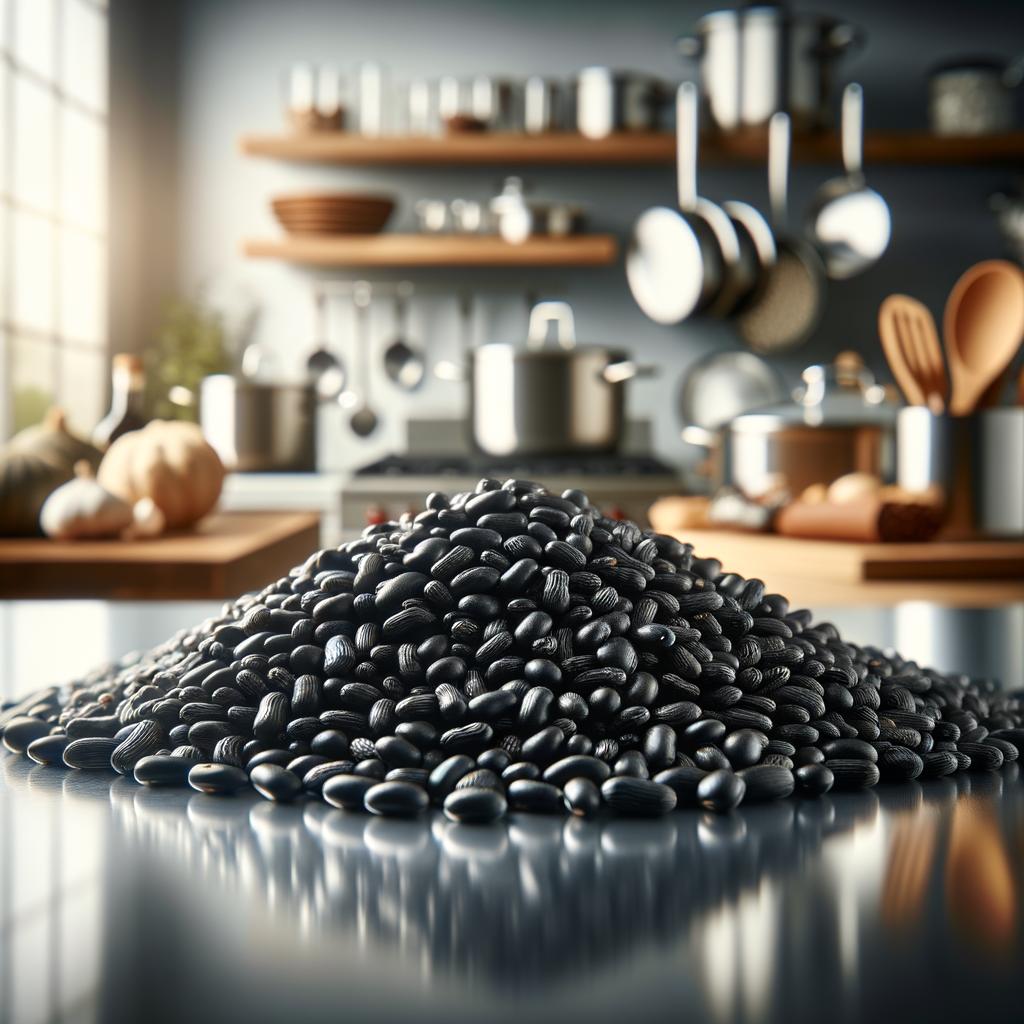Dried Black Beans

Description
Dried black beans, also known as turtle beans, are a captivating culinary ingredient that deserve our attention. They are small, oval-shaped legumes with a glossy, jet-black skin that carries a certain mystique. The beans are firm to the touch but soften beautifully when cooked, transforming into a tender, almost creamy delight. Their flavor profile is deep and robust, with an earthy sweetness that is both comforting and satisfying. The magic of black beans lies in their ability to absorb other flavors while maintaining their own distinct character, setting them apart from other beans.
Primary Uses
Black beans are a versatile ingredient with a wide range of culinary uses. They are a staple in Latin American cuisine, featuring prominently in dishes like feijoada, a hearty Brazilian black bean stew, and Moros y Cristianos, a Cuban dish of black beans and rice. They're also essential in Mexican cuisine, used in everything from soups to enchiladas. Beyond their culinary uses, black beans have cultural significance in many societies. In China, they are used in medicinal soups believed to promote kidney health.
History
The history of black beans is as rich as their flavor. They were first domesticated in the Americas over 7,000 years ago, with evidence of their use dating back to pre-Columbian times. In ancient Aztec and Mayan cultures, black beans were considered a staple food and were often buried with the deceased as a means of providing sustenance in the afterlife. Over time, their use spread to Europe and Asia through trade routes. There's an old Mexican legend that says eating black beans can give one the strength of a bear, a testament to their nutritional power.
Nutritional Information
Black beans are a nutritional powerhouse. They are high in protein, making them an excellent choice for vegetarians and vegans. They are also a great source of dietary fiber, which aids in digestion and helps maintain a healthy weight. Black beans are rich in essential minerals like iron, magnesium, and zinc, and are packed with antioxidants. Their low glycemic index makes them a good choice for people with diabetes. Compared to other beans, black beans have a higher anthocyanin content, a type of antioxidant that's also found in fruits like blueberries and cranberries. The humble black bean, with its intriguing history and impressive nutritional profile, is truly a gem in the world of food.

